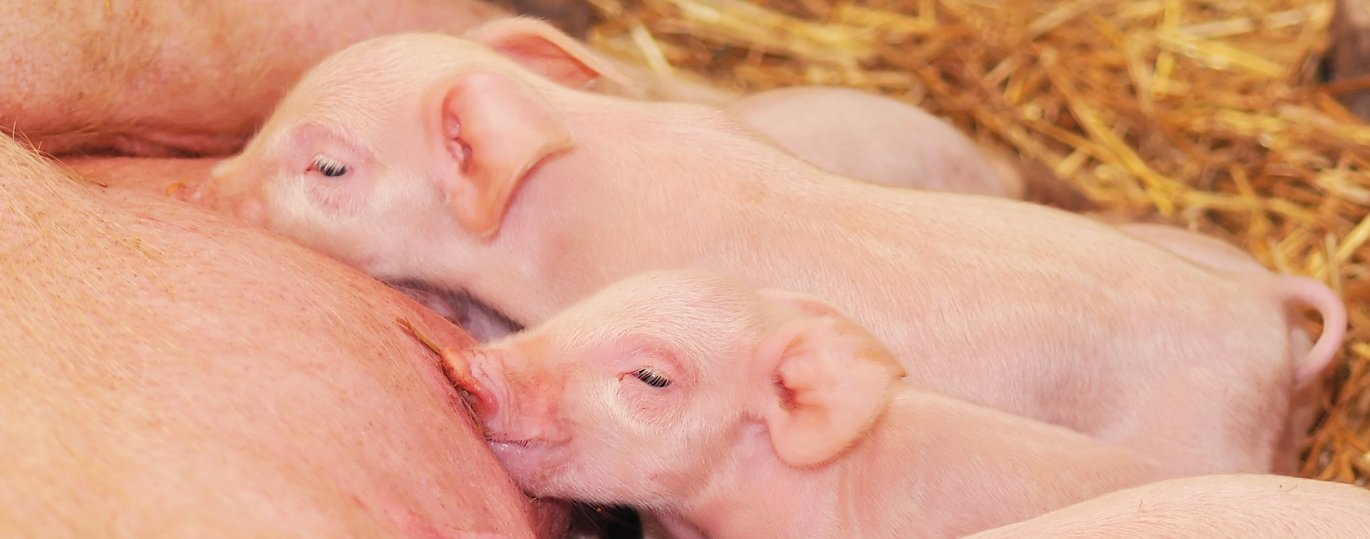Nanobodies against diarrhoea in piglets
Based on antibodies from llamas, a new, biological remedy to reduce diarrhoea in piglets may constitute an environmentally friendly alternative to medicinal zinc added to feed rations. The Green Development and Demonstration Programme (GUDP) funds almost 11 million DKK to further develop the product for market approval. Researchers from Department of Animal Science at Aarhus University participate in the project.

How can nanobodies help prevent diarrhoea in piglets?
This is a question to be answered by the biotech company Bactolife in cooperation with Novozymes, the Technical University of Denmark, SEGES (Danish Agriculture and Food) and Aarhus University. Research efforts will take place within the framework of the Ablacto+ project.
Professor Charlotte Lauridsen, Department of Animal Science at Aarhus University, explains:
- Many piglets suffer from weaning diarrhoea when they are removed from the sow and have to get used to new facilities and new feed. So far, antibiotics and high concentrations of zinc oxide have been used to treat weaning diarrhoea. However, a major consumption of antibiotics may result in resistance development, and medicinal zinc, a heavy metal, will be banned in the EU in 2022. Zinc accumulates in the soil when animal slurry is distributed to the fields. Therefore, we have to find alternatives.
11 million DKK from the Green Development and Demonstration Programme (GUDP)
Ablacto+ just received a grant of DKK 11 million from GUDP to continue the efforts to develop the Bactolife product for the commercial market.
- Ablacto+ contains special proteins, nanobodies, which are able to bind and neutralize the E. coli bacteria that cause diarrhoea in piglets. The nanobodies are derived from antibodies found in llamas. Llamas and other animals from the Camelidae family produce antibodies, the binding site of which has special characteristics – they are more stable and more compact than similar proteins. They do not interact with other substances or processes in the body, and they do not induce resistance. It seems obvious to use these for our purpose, says Sandra Wingaard Thrane, Ablacto+ Project Leader and Bactolife co-founder.
A Belgian university discovered the special antibodies in llamas, but the university’s general patent as to the use of this type of molecules has now expired. This allowed the biotech company Bactolife to use this type of antibodies in their research efforts.
Comprehensive tests at Aarhus University
The Bactolife product is still under development, and – by means of a grant from Innovation Fund Denmark in the form of an Innobooster project – preliminary experiments have been accomplished in laboratories and experimental facilities at Aarhus University in Foulum.
- We examined whether provision of the nanobodies developed had an effect on an E. coli O149 infection in pigs. We achieved interesting results that call for further tests with doses and allocation periods, says Professor Charlotte Lauridsen, Department of Animal Science.
On behalf of Aarhus University, Senior Researcher Nuria Canibe will be in charge of the further research and project development that may result in a feed additive for piglets with the aim of preventing outbreaks of E. coli induced weaning diarrhea.
The next step will be to test the product in production herds and subsequently to develop the product further in order to be able to produce it at a competitive price and to make it ready for the market by ensuring the necessary approvals.
Project facts
| FINANCING Projektet finansieres af GUDP PROJECT PARTNERS Bactolife ApS; DTU Bioengineering; AU-ANIS; Novozymes A/S; SEGES. Bactolife ApS came up with the idea, established the company and will be in charge of the development of nanobodies. Novozymes is an essential cooperation partner in relation to nanobody products. Researchers from Aarhus University will contribute with dosage-response trials with pigs in E. coli infection experiments. Researchers from DTU Bioengineering will contribute with laboratory experiments in relation to nanobodies. SEGES will participate with large-scale tests of the efficiency of the product as a means to manage weaning diarrhoea in piglets. CONFLICTS OF INTEREST None CONTACT Sandra Wingaard Thrane – Project Leader of Ablacto+ and Bactolife co-founder - swt@bactolife.com Nuria Canibe – Senior Researcher and Project Leader – Department of Animal Science -nuria.canibe@anis.au.dk |
|---|
